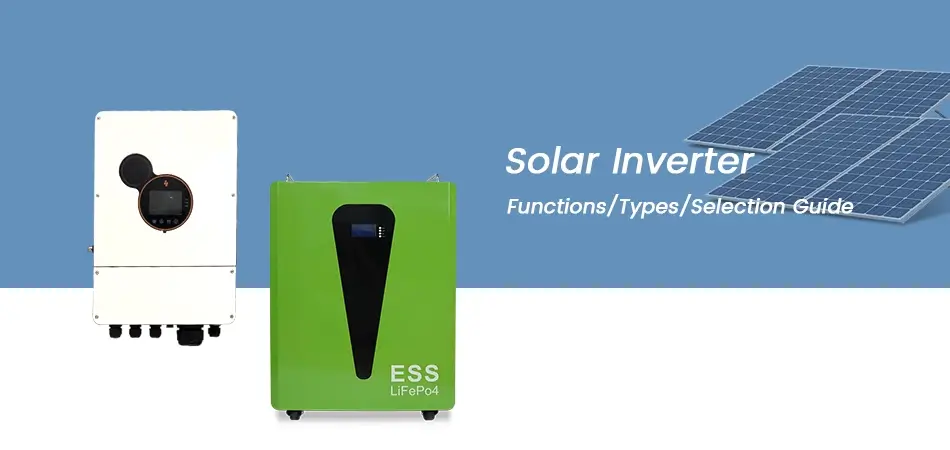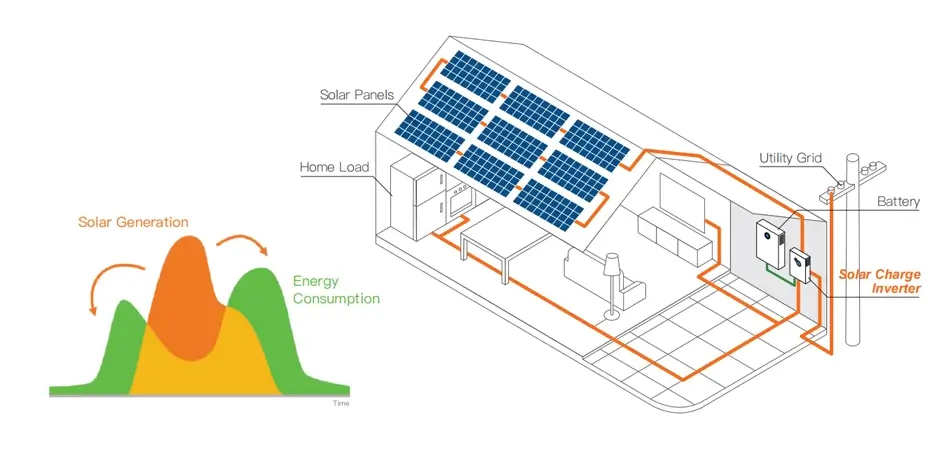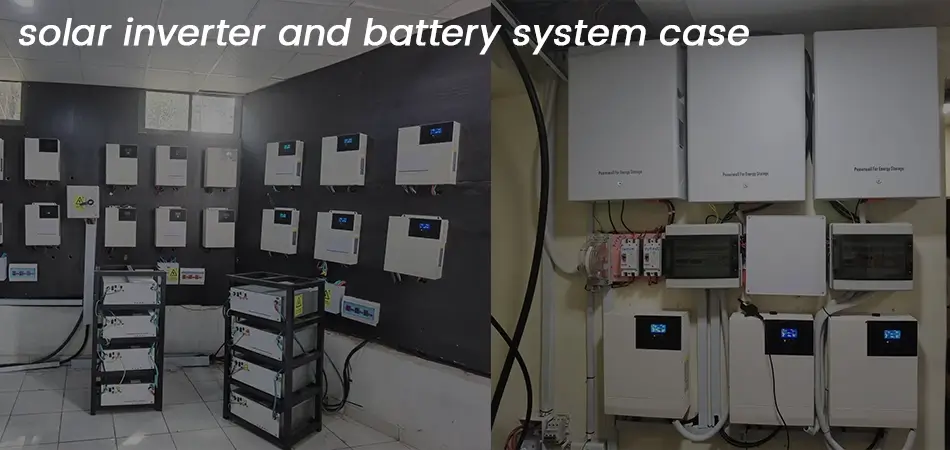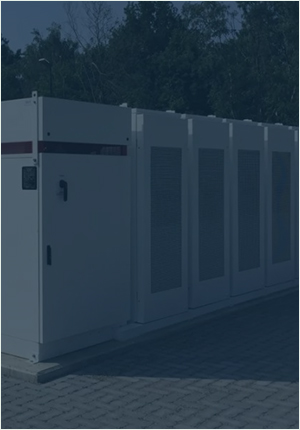2024-11-11 Author : CXJPowers
For home energy system, solar inverters, as one of the core components of solar energy systems, play a vital role. This article will explore the role of inverters, different types and their advantages and disadvantages, the life of inverters, and how to choose the right inverter.

The Roles of Solar Inverter in Home Battery System
The main function of solar inverters is to convert the direct current generated by solar photovoltaic panels into alternating current for use in homes and businesses.
In addition, inverters also have the following functions:
1. Power optimization: improve the power generation efficiency of solar systems.
2. Grid interaction: enable solar systems to seamlessly connect to the public grid.
3. Protection function: monitor and protect solar systems from faults and overloads.
2. Types and advantages and disadvantages of inverters

There are many types of solar inverters, each with its own unique advantages and disadvantages.
The following is a detailed discussion of inverter types and their advantages and disadvantages:
Advantages:
Cost-effectiveness: Centralized inverters are generally more cost-effective because they can share costs over a larger range.
Easy maintenance: Since there is only one inverter unit, maintenance and troubleshooting are relatively easy.
Higher efficiency: Centralized inverters generally have higher overall efficiency because they can optimize power output over a larger range.
Disadvantages:
Matchability restrictions: Centralized inverters have high matching requirements for solar PV panels, which may cause some energy loss if there are performance differences between panels.
Low flexibility: Since there is only one inverter, the operation of the entire system is limited by a single inverter.
Large fault impact range: If the inverter fails, the entire home battery system may be affected.
Advantages:
Matchability flexibility: String inverters allow each string to operate independently, thereby reducing the impact of performance differences between panels.
Power generation optimization: Each string can optimize power output independently, thereby increasing the power generation of the home battery system.
Fault isolation: If a string fails, other strings can still continue to operate, reducing the impact of the fault on the entire system.
Disadvantages:
Higher cost: String inverters are generally more expensive than centralized inverters.
Complex maintenance: Due to the multiple inverter units, maintenance and troubleshooting are relatively complex.
Slightly lower efficiency: Since each string needs to be provided with an independent inverter, the overall efficiency is slightly lower than that of a centralized inverter.
Advantages:
Maximize power generation: Micro inverters allow each solar PV panel to operate independently, thereby maximizing power generation.
Minimize the impact of failure: If a photovoltaic panel fails, other photovoltaic panels can still continue to operate, reducing the impact of the failure on the entire system.
Real-time monitoring: Micro inverters can monitor the performance of each photovoltaic panel in real time, which helps to detect and solve problems in a timely manner.
Disadvantages:
Highest cost: Micro inverters are generally more expensive than centralized and string inverters.
Complex maintenance: Since each photovoltaic panel has an independent inverter, maintenance and troubleshooting are relatively complex.
Slightly lower efficiency: Since each photovoltaic panel needs to be provided with an independent inverter, the overall efficiency is slightly lower than that of a centralized inverter.
The service life of a solar inverter is usually between 10-15 years, but the specific life depends on many factors, such as product quality, installation and maintenance.
In order to extend the service life of the inverter, it is recommended to perform regular inspection and maintenance.
When choosing a solar inverter, the following factors should be considered:
1. System scale: Select an inverter with a capacity greater than the total capacity of the solar panels.
2. Cost-effectiveness: Consider the price, efficiency and life of the inverter and choose the inverter with the best cost performance.
3. Brand and quality: Choose a well-known brand and high-quality inverter to ensure the stability and reliability of the system.
4. Installation and maintenance: Choose an inverter that is easy to install and maintain to reduce operating costs.
5. Policies and subsidies: Understand the local government's policies and subsidies for solar inverters to get more benefits.

Conclusion
Solar inverters play a vital role in home battery systems. Understanding the role of inverters, different types and their advantages and disadvantages, service life, and how to choose a suitable inverter is essential to ensure the efficient operation and long-term benefits of solar energy systems.
When choosing an inverter, it is important to consider a variety of factors to ensure that you choose the inverter that best suits your needs.
If you still have a lot of doubts about how to buy an inverter, you can consult us(info@cxjpowers.com), or choose to buy an all-in-one machine, which integrates batteries and inverters and does not require an additional inverter.
-------------------
Welcome to customize home battery system. Contact us now!
CXJPowers provides one-stop customized portable power supplies, LiFePO4/ternary lithium battery pack packs, emergency energy storage solutions, and supports OEM&ODM services.



